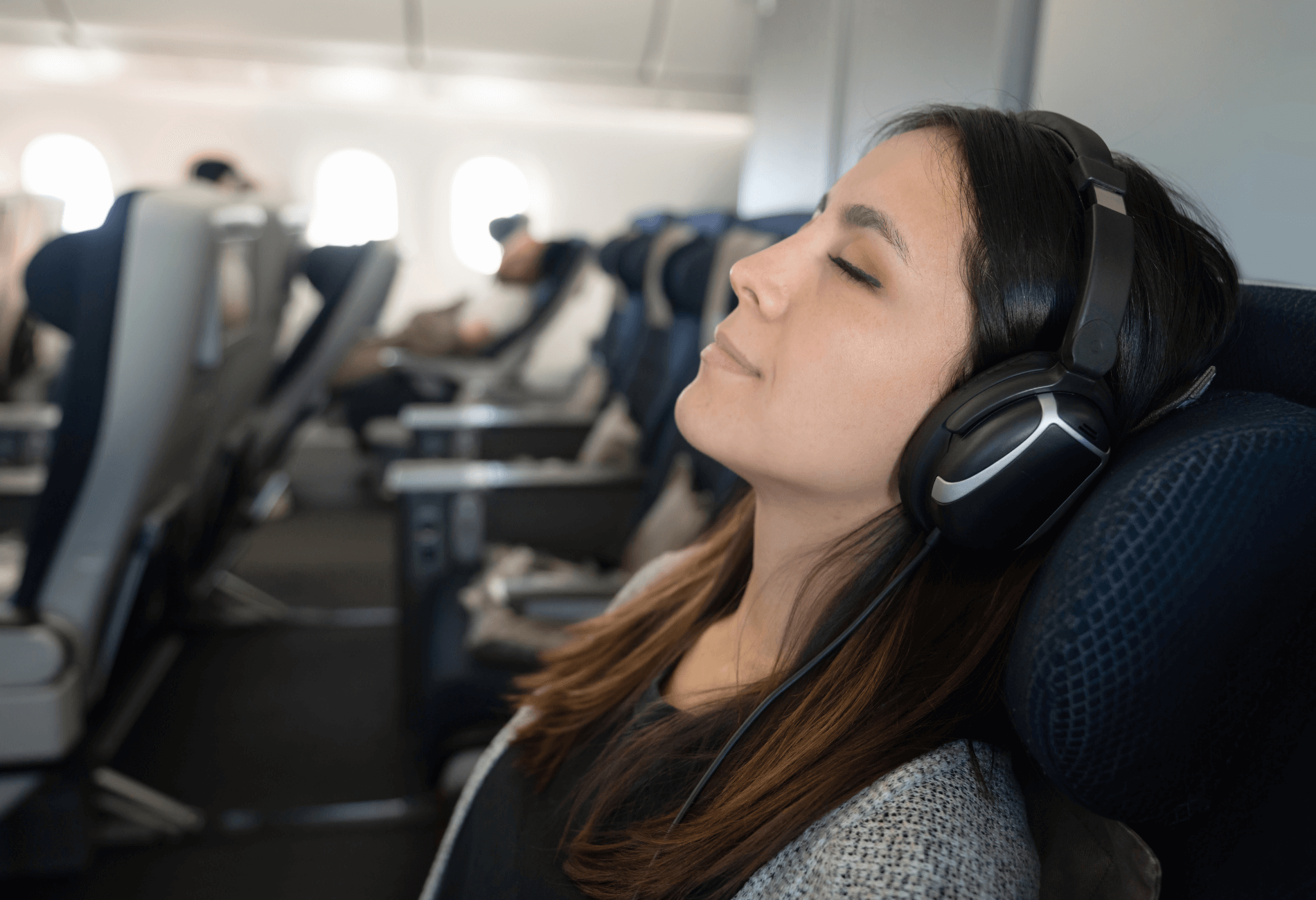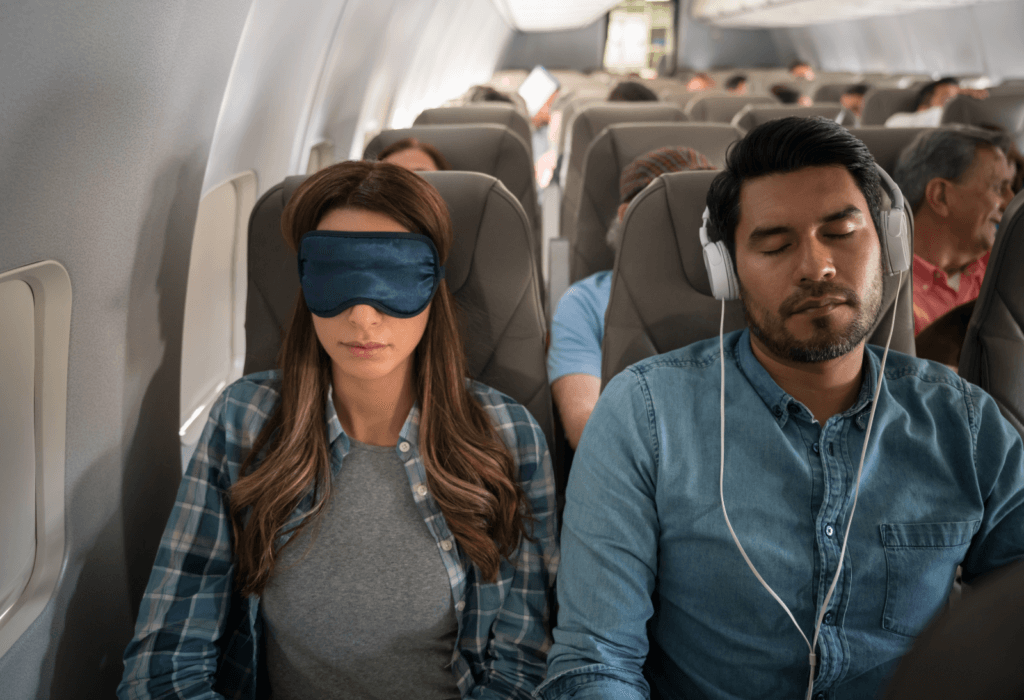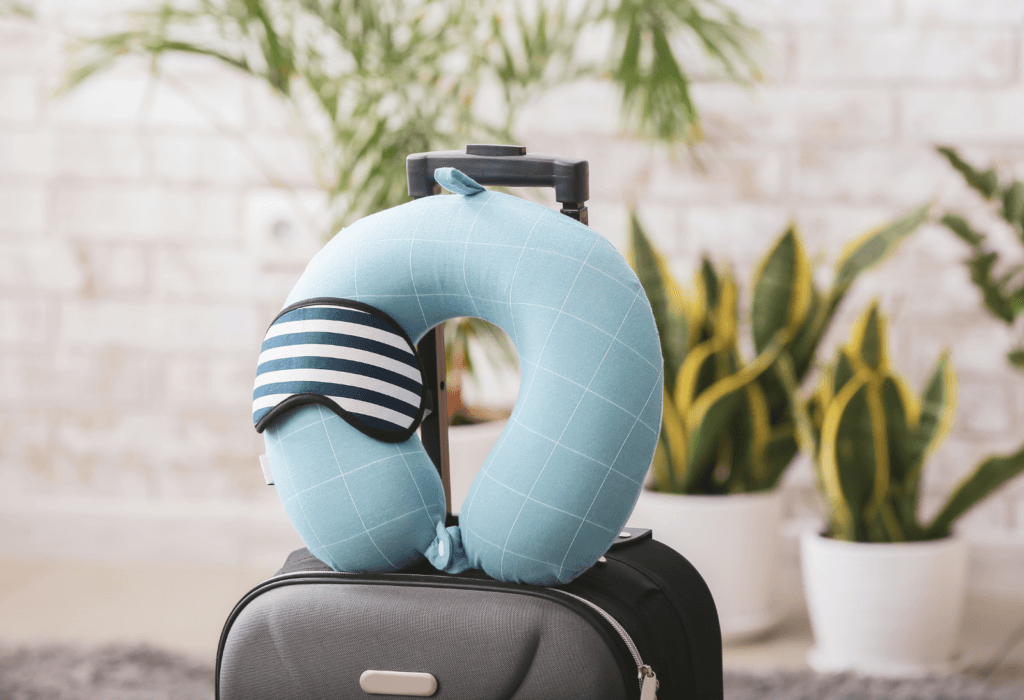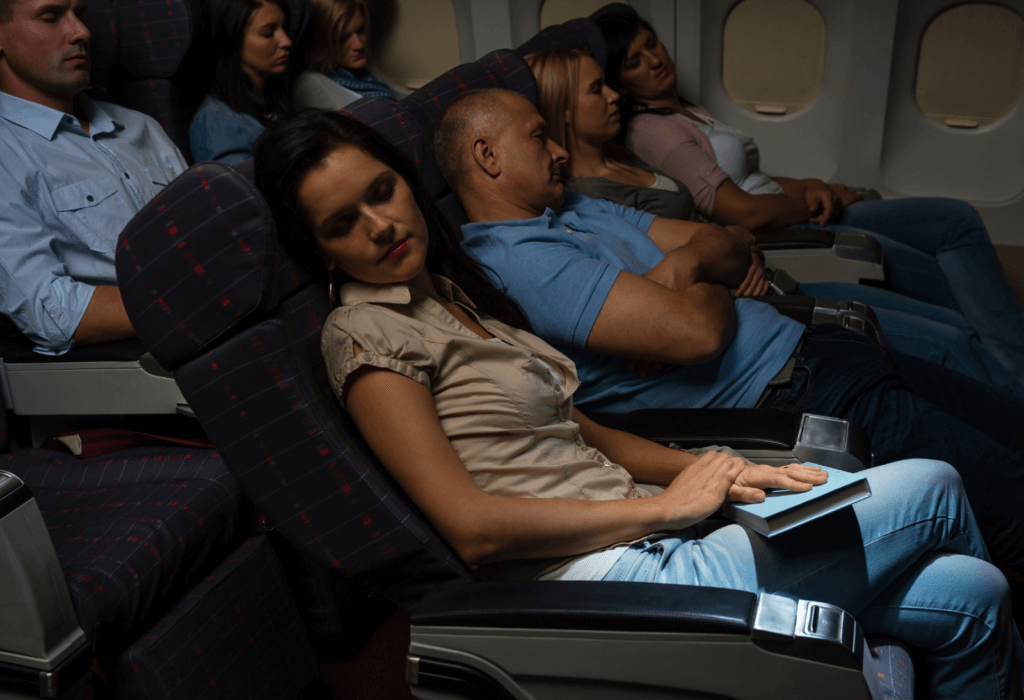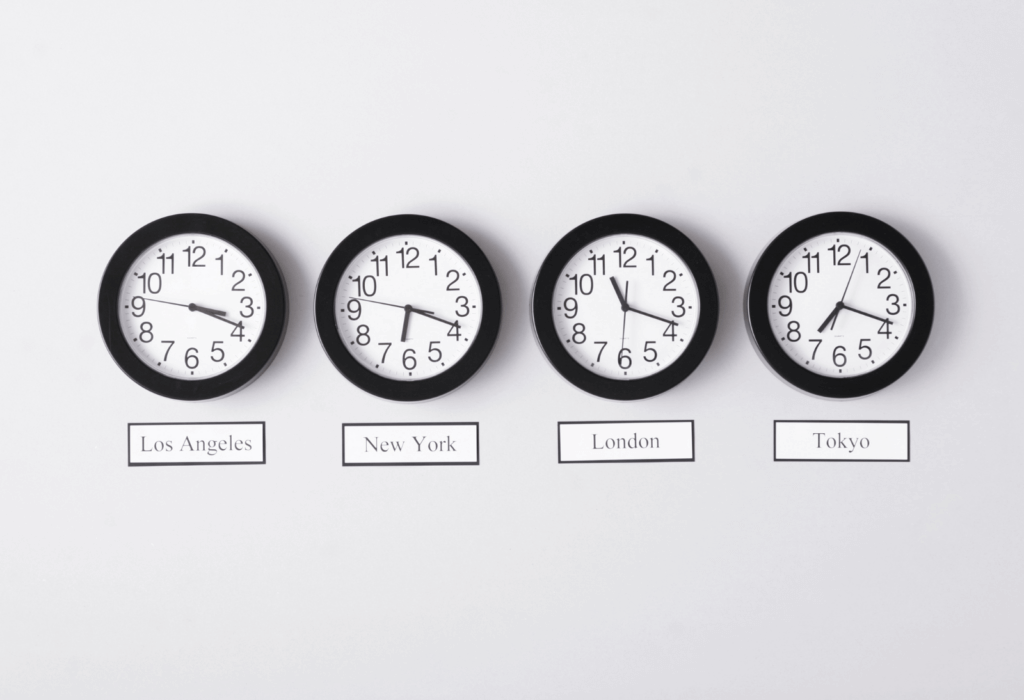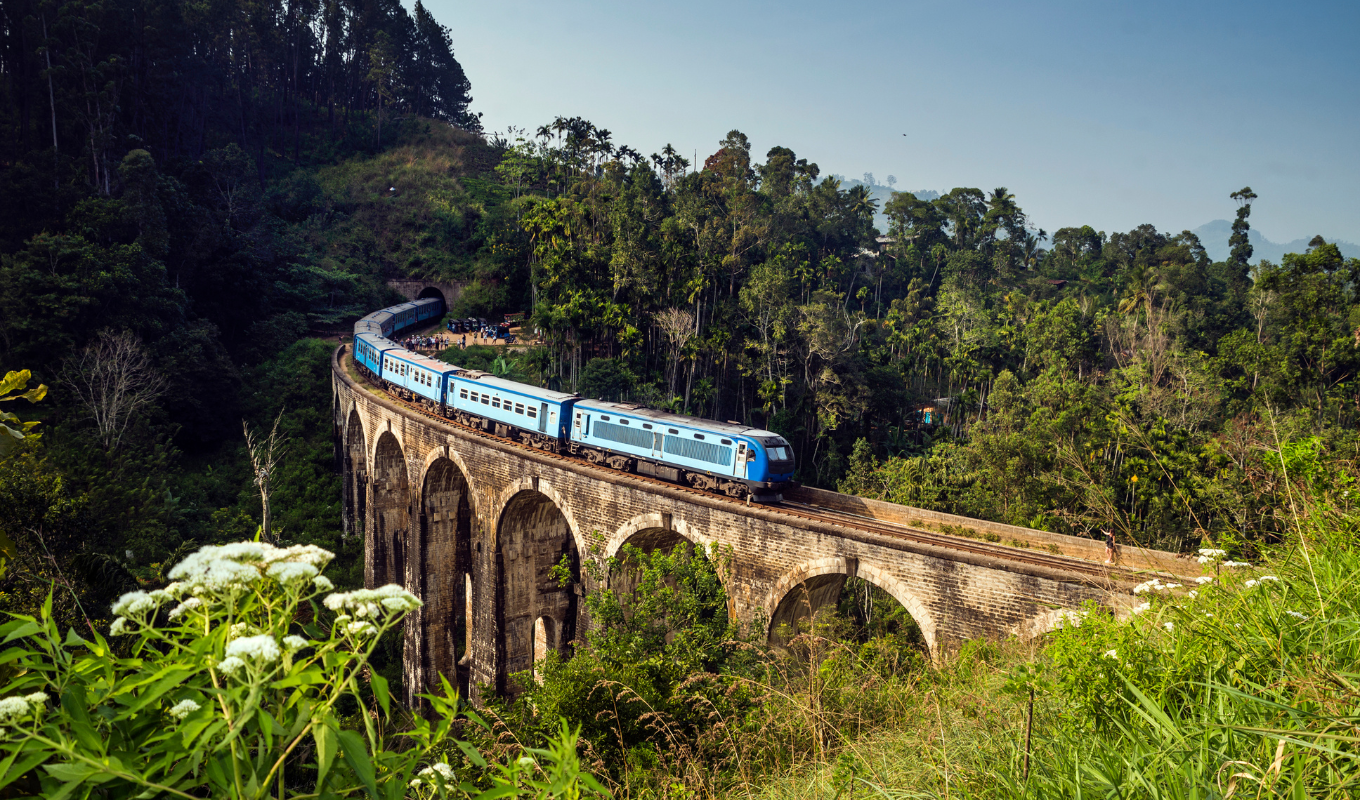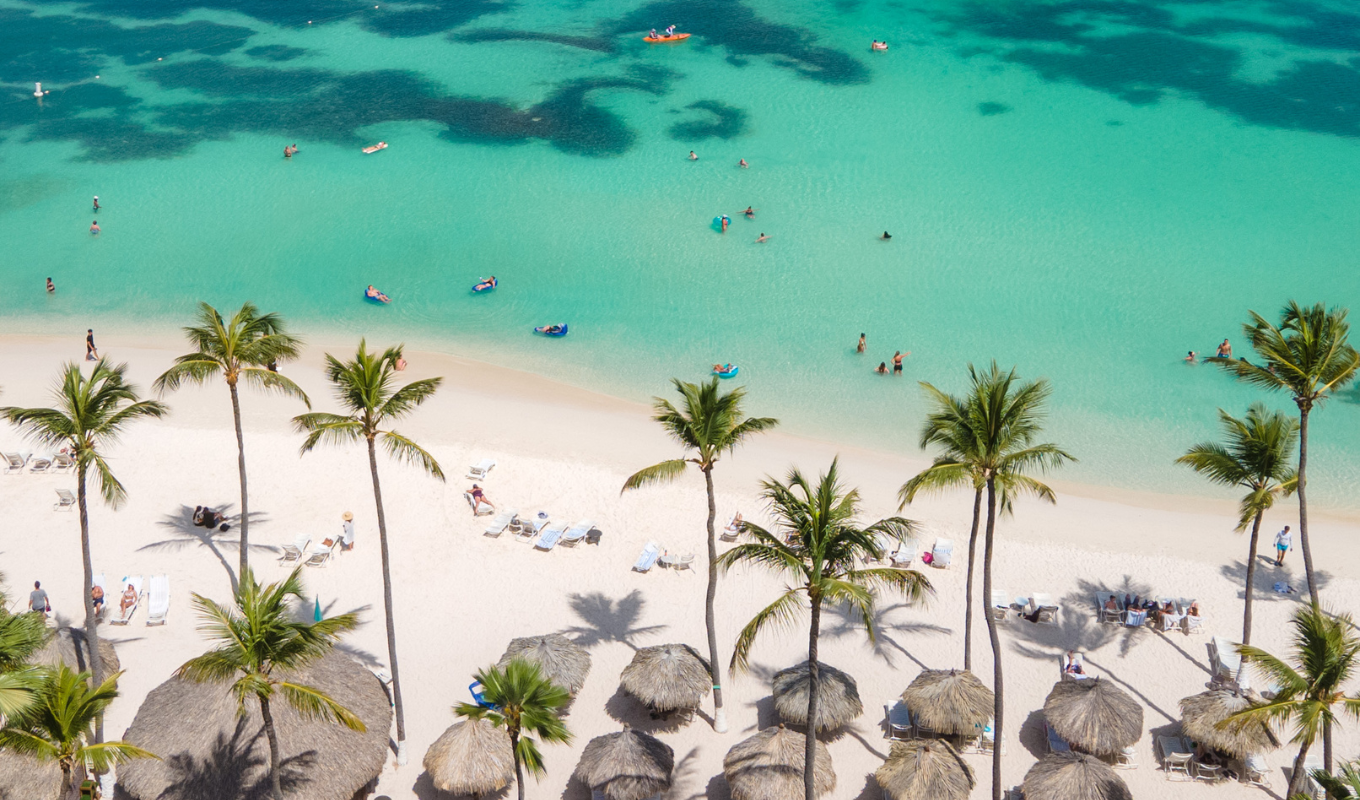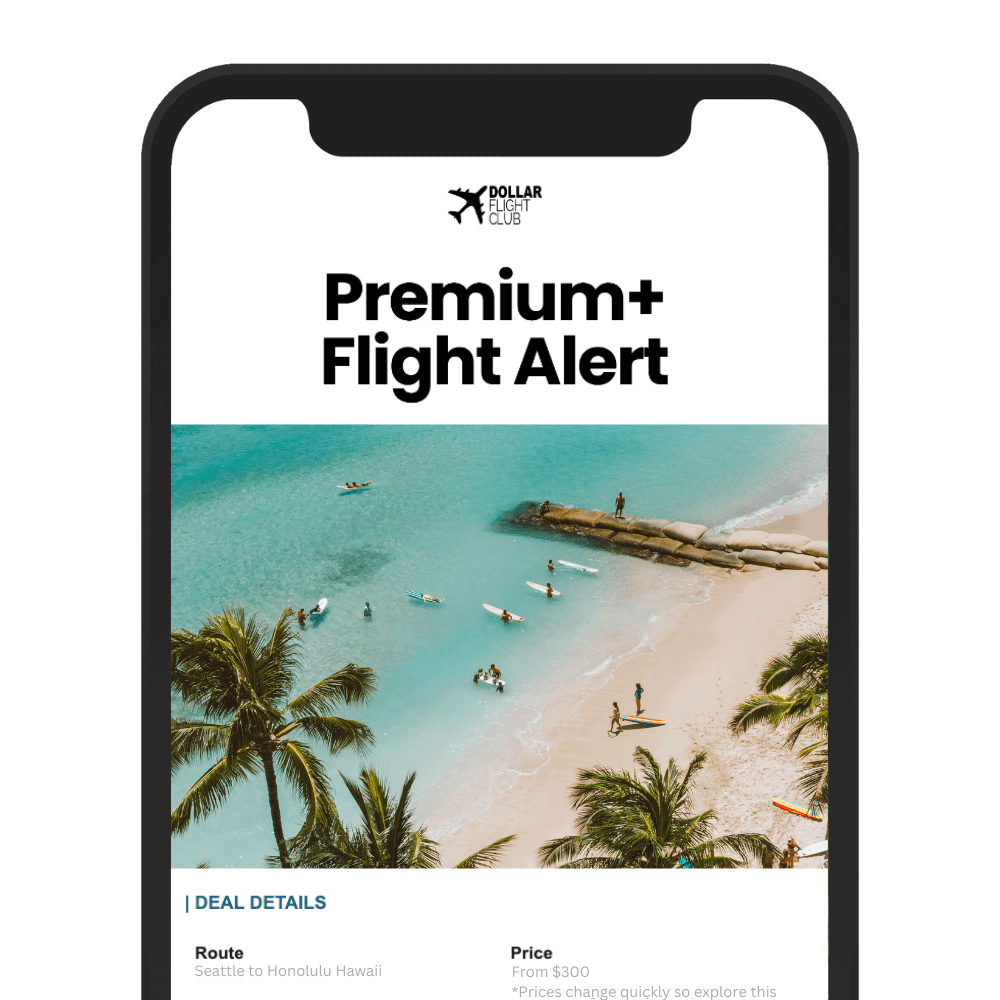If you have trouble sleeping on planes, you’re not alone. It’s understandable given that airplane seats might be in the top 10 most uncomfortable things (right after running into an ex when they’re with a new partner). But, I digress.
Falling asleep while surrounded by strangers is difficult, to say the least. Even the most experienced travelers need tips for sleeping on planes. The noises, torturous seating, and even anxiety can all ruin a flight. If you’ve gone through the trouble of booking your dream vacation, don’t let sleep trouble start your trip on the wrong foot.
So, if you have trouble dozing off while flying, here are the best tips for sleeping on a plane.
Take care of the noise issue
Whirring sounds, intercom announcements, snoring, seat mates chatting. Those are just a few noises you can expect to hear onboard a plane and, you guessed it, they can all severely disrupt your sleep. If you want to reduce the noise, consider these options:
Try getting earplugs. Some airlines might provide them for free, but these days most of them charge as much as $9 for them, so I recommend planning ahead and splurging for the comfy ones.
If you don’t like the feeling of earplugs, you can do what I do and put on headphones even when you’re not listening to anything. It helps dull those ambient noises that rustle us awake.
Even better, splurge for some highly-rated noise-canceling headphones like the Bose QuietComfort series, which block out engine noise, cabin chatter, and other ambient sounds even when you’re not listening to anything.
If you really need to drown out the drama and create a peaceful environment for sleeping, try listening to white or brown noise to help calm your nerves.
Avoid alcohol and certain foods
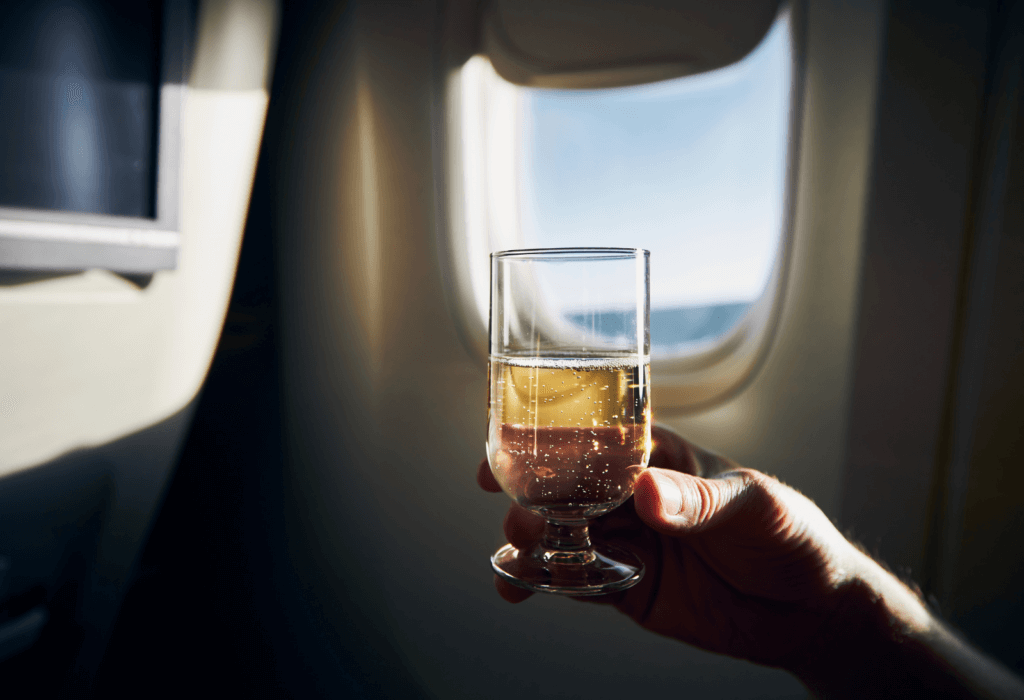
Your diet can certainly affect how likely you are to doze off. And, it doesn’t start the day you are flying, but even a few days in advance. A few days before you go wheels up, be sure to drink lots of water and stay hydrated.
While flying, avoid too much sugar, carbs, caffeine, and alcohol. Alcohol, in particular, can disrupt your sleep during and after the flight, so consume carefully and in moderation. (But, let’s be real: if you’re celebrating, pour up the champagne and deal with the jet lag and hangover.)
Sleep aids like CBD gummies or melatonin are something to be considered. They might not be for everyone, but some people swear by them, especially for long flights. We recommend testing them out one or two times before a trip to see how your body reacts to them.
Supplements like melatonin or CBD gummies are popular options, but you’ll have to figure out how to time them out with your flight schedule. If you’re flying back west and are worried about waking up too early, you might take one to try to sleep longer. If you’re flying east and want to train your body to wake up earlier, you might take a supplement 30 minutes to an hour ahead of your regular bedtime.
If you have any questions, consult your doctor for advice.
Pick your seat wisely
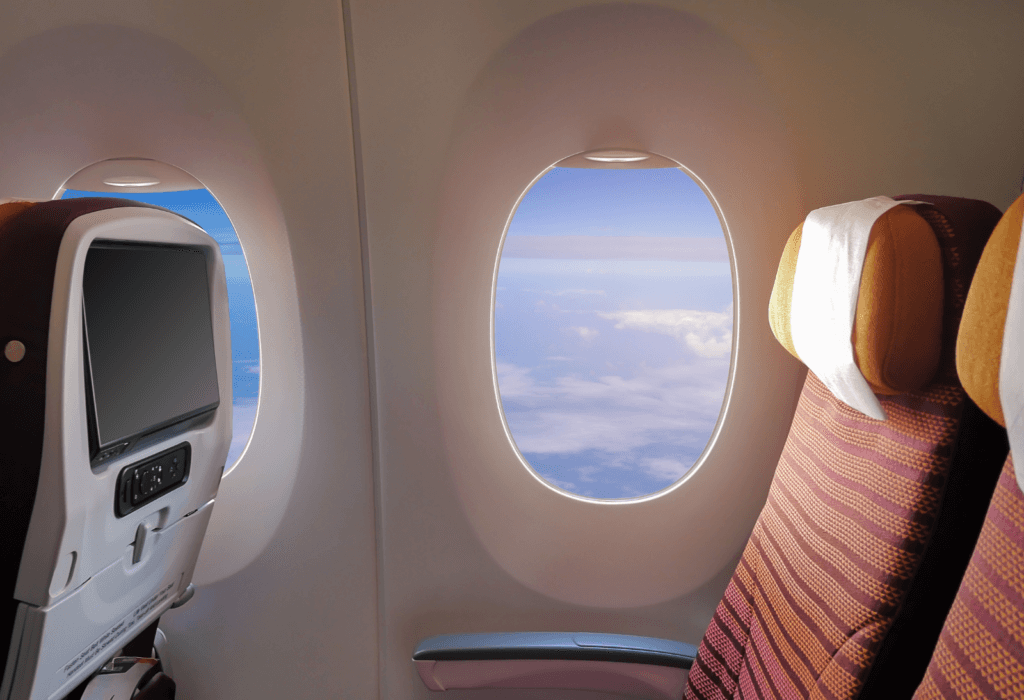
Selecting the right seat can be crucial to sleeping on a plane. I, personally, always spring for the window seat so I have something to lean my head on and if I do fall asleep I don’t have to worry about blocking someone from getting out of their seat like someone in the aisle seat would.
Something else to consider is foot traffic. Choose a seat where there are fewer people passing by. For instance, avoid the seats near the bathrooms or the galleys where stewards prepare drinks and food. Less commotion means you’re likely to fall asleep faster.
Get comfy with the right sleep accessories
Above all else, being comfy is essential to getting the best sleep on a plane. I have a go-to, cozy plane outfit that is loose and soft so I can make those gnarly seats at least a little bit bearable.
After comfy clothes, the most essential sleep accessory is a neck pillow that holds your head up straight. There’s nothing worse than finally falling asleep on a long-haul flight and then waking up with a neck kink, so it’s definitely worth the investment. I recommend trying out a few before committing, but this one and this one have rave reviews. And, If you’re a particularly light sleeper, I also recommend packing a light-blocking sleep mask. This washable silk option is the perfect size for ensuring a dark environment, while its cushioned design adds a bit of weight to help you relax.
Get your feet in the right position
It may sound odd, but getting your legs in a comfy position can make or break a long journey.
First off, don’t cross your legs and cut off any blood flow. Otherwise, you’ll wake up cranky and in pain (trust me, I know).
Secondly, having a slight bend is important. However, if you’re short, like me, it’s hard to get your feet in the right position. I was considering buying a foot hammock until I saw this. Instead, I prop my feet up on my backpack, as a quick solution. I’ve noticed it’s stopped a lot of the swelling I get in my feet, which is a huge win for me.
Tire yourself out before you take off
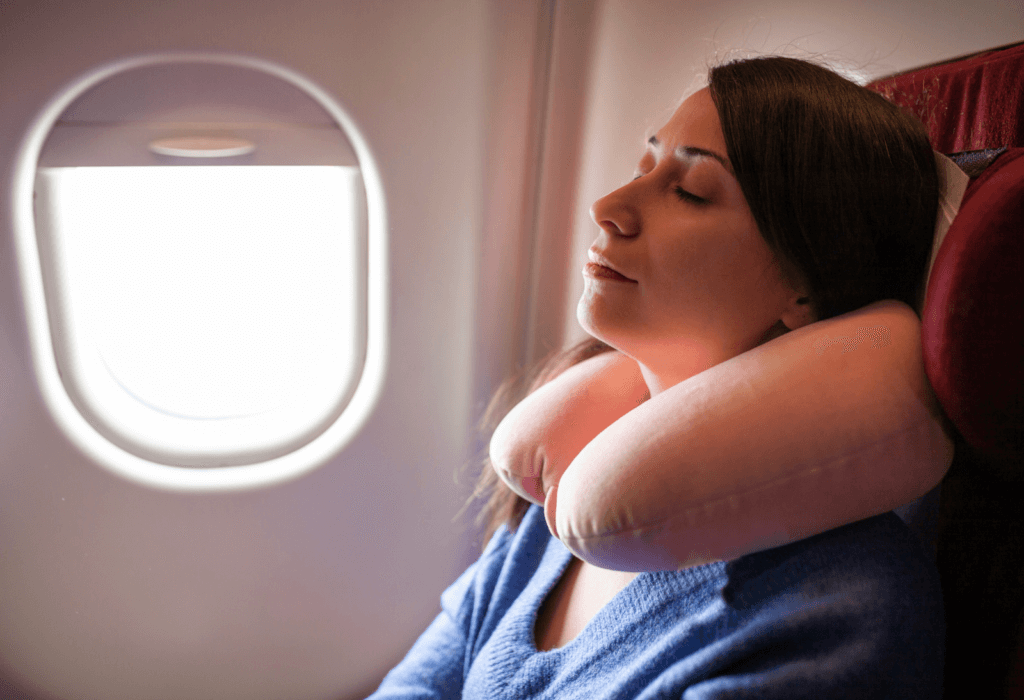
If you know you have a long flight, get moving beforehand. Squeeze in an intense workout to help knock you out as soon as your tush touches the seat.
Certainly don’t overdo it, but it’s a good idea to get your energy out. On the day of your flight, however, make sure you have enough time to decompress. Give yourself plenty of time to go through the airport without rushing and causing your adrenaline or anxiety to spike. Stay cool, calm, and collected.
Follow your regular nighttime routine

It would serve you well to follow your regular nighttime routine to the best of your ability. That might include changing into comfy clothing, brushing your teeth, reading a book, or drinking tea. Essentially trick your mind into thinking it’s time to go to sleep. You should also avoid too much screen time and distractions that could keep you awake.
Take time zones into account
If you’re crossing oceans or time zones, make sure you plan for when the best time is to get some shut-eye. It’s kind of annoying to figure out but, luckily, there are plenty of apps now that help with that.
Apps like Timeshifter help keep your circadian rhythm on track and calculate exactly when you should fall asleep to avoid that awful jet lag and grogginess.
If you really wanna get ahead, you should start adjusting your sleep schedule days in advance. Set your clock to your destination’s time zone and start living on that time. For instance, eat your dinner when it’s 7 pm at your destination and shift the rest of your schedule slowly. It’ll definitely take a few days, but a small adjustment is better than none.
Things to remember
Remember, everyone’s sleep needs are different, so figure out what works for you. That means trial and error and a good excuse to book more trips to test things out. We trust you’ll find the right combination of the tips above and be fast asleep by the time you’re finished reading this sentence.

